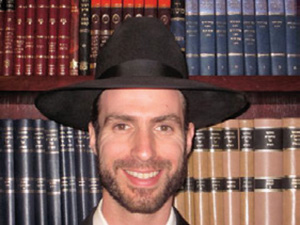

The whisper. The shul is packed with people, and they are all waiting for that whisper. It will be any minute now. All eyes are glued to one man as the moment draws nearer. Any second now.
Silence, except maybe for the baby’s whimper. The father of the 8-day-old child leans over and whispers what the name of his child will be to the rav, who then proceeds to officially name the child. This time in a loud voice for all to hear. There’s no turning back now. All the months of contemplations and deliberations have come to an end. The baby has his name for all eternity.
The family and friends need no longer be curious. The secret is out. The whisper came and went. It revealed to all what they’ve been waiting so desperately to know. So much anticipation, for such a monumental decision. And now it’s over. No, just beginning.
One can’t help but wonder why it is that a child’s name is kept hidden, shrouded in mystery, until he or she receives it?
In Avnei Yushphei (1:196:6), the author writes that he is at a loss to explain why the custom has become not to let people know the name you are planning to bestow upon your child. He is stumped as to what the reason might be.
However, in Shemos B’aretz (page 65) it is brought from Rav Chaim Kanievsky that it is to prevent ayin hara, the evil eye. The human mind has the ability to trigger forces that can cause damage or destruction to physical objects. But what’s so special about a person’s name that there can be a negative consequence if revealed before the proper time? What is so exceptional that there’s potential for harm?
Perhaps the answer is as follows. The Sefer Hagilgulim (Otzer Habris page 327) writes that Hashem plants the name of a newborn child in the mouths of the father and mother. It is a prophecy of sorts. They have a level of Divine inspiration. The Arizal (Taamei Haminhagim page 397) writes the same thing. A person’s name is their very essence—it is much more than simply a easy method to identify them.
Indeed, each and every person has their name hinted to in the Torah itself! There is a well-known incident that occurred with the Ramban and one of his disciples whose name was Avner. A very smart man, Avner was one of the Ramban’s top students. However, when the Ramban stated that everyone is alluded to in the Torah, Avner could not accept that. He was so turned off by such a rash statement that he completely left the ways of a religious Jew. Years later, the Ramban and Avner met. It was Yom Kippur, and it was also Shabbos. Avner proceeded to take a pig, mix it with milk, cook it over a fire and eat it. All in the presence of the Ramban. They then had a halachic debate as to how many transgressions exactly he just violated! (The rule is that something that is already forbidden cannot become forbidden again unless certain requirements are met. This made the puzzle all the more difficult.) The Ramban had one question: Why are you doing all of this if you are such a great Torah sage? Avner explained that he just could not accept that his name is hinted to in the Torah. The Ramban told him that he will tell him where his name is. In Parshas Haazinu (32:26) it is written: Af’eihem ashbisa me’enosh zichram. I will scatter them, I will cause their memory to cease from man. The third letter from each of those words spells Avner. Stunned, he asked how he can repent. The Ramban responded, follow what the words tell you. Disappear. Be forgotten from man. Legend has it that he went on a boat, out to the ocean, and wasn’t heard from again.
This name that a person possesses can be used for good or bad. The Gemara (Berachos 7b) writes “shma garem.” A name can cause future occurrences. The Zohar (Bereishis 58b) elaborates that for those who choose to be righteous, their names are the cause of good; for those who choose evil their names are the cause of bad. That is, the God-given name contains within it the potential of its bearer at both ends of the moral spectrum.
Therefore, having the public discuss the name before it’s actually given is tampering with something that can have life-changing consequences. We keep it hidden, letting only Hashem and the parents be aware of what that burst of Divine inspiration will reveal.
I had a classmate in elementary school, who, whenever his named was called, responded with “That’s my name, don’t wear it out.” Now it rings so true. Everyone has their name. Don’t wear it out.
By Rabbi Eliezer Krohn
Rabbi Eliezer Krohn, of Passaic/Clifton, is a sixth-generation mohel. He lectures all over the tri-state area and his classes can be found on torahanytime.com. He is the son of Rabbi Paysach Krohn.









